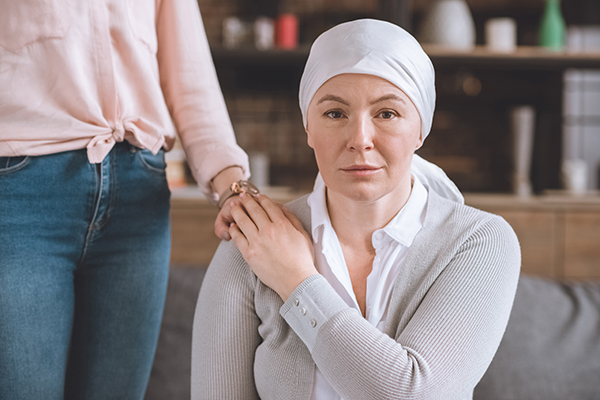Xanax is the brand name for alprazolam. It is a very powerful and quick-acting central nervous system depressant. Xanax works on the body by binding itself to the gamma-aminobutyric, or GABA, receptors located in the brain and slows down their activity. GABA blocks the nerve signals responsible for causing feelings of stress, anxiety, and fear from ever reaching the brain. What Xanax does is triggers the GABA receptors by stimulating them and produces feelings of sedation and relaxation in the body. Due to the effects that Xanax has on the body, it is among the most abused drugs out there.
Long Term Use of Xanax and Potential Cancer Risks
Xanax is among the list of benzodiazepines that have been observed to being associated with cancer when used long term. One of the potential links that long-term abuse of Xanax has to cancer is that benzo use has been shown to promote bacterial infections that can increase the risk of cancer. Specifically, it is shown to drastically increase the likelihood of bacterial pneumonia infections, making someone more susceptible to lung cancer.
More About Xanax And the Risk of Cancer
Another contributing factor for cancer is developing inflammation. There is a very strong association with severe inflammation and specific cells in the body that can negatively affect the immune system. This can aid in the progression of certain cancers like non-Hodgkin’s lymphoma and gastric cancer. This is specifically important because a long-term effect of Xanax use is chronic tissue inflammation. Therefore, there is a strong likelihood that Xanax can indirectly cause cancer. The best thing to do is not take the chance, get help for your addiction because the side effects both long and short term are not worth it. We can help you with your drug addiction, whether it be to Xanax or any other type of drug. Get help before it is too late.
Xanax Provides To Different Types of Cancers
There have been dozens of studies done within the last 30 years on whether or not Xanax can increase the risk of cancer. Unfortunately, the answer to this is leaning closest to maybe. It is very hard to find a conclusive answer because there are more than 2,000 different benzodiazepines, the active ingredient in Xanax, and many forms and types of cancer. The most frequently linked cancers with long-term Xanax use include brain, lung, prostate, and bladder cancer. The overall carcinogenicity of benzos remains pretty unclear at this point, but it does increase the risk for certain kinds of cancers. An article published by NIH states:
We also observed that benzodiazepines exposure increased the overall cancer risk up to 21%, specifically for brain 98%, colorectal 25%, lung 10%, esophagus 59%, prostate 36%, bladder 39%, liver 18%, pancreas 41% and other cancers 27%. However, cervical, ovary and stomach cancers were not observed statistically significant.
Are You Struggling with Xanax Abuse?
The long-term effects of Xanax are still being studied in full right now, but it is widely known that it has a high potential for abuse and addiction. Building up a tolerance to Xanax happens very quickly, causing misuse to happen. As your body grows a tolerance, you need to take more and more to feel the same effects will need to increase. That is why Xanax is never prescribed to someone for long-term relief. While Xanax can increase your chances of developing cancer, it also has a long list of other harmful effects on your body, such as anxiety, irritability, tremors, heart palpitations, weight loss, paranoia, and seizures.
Get Your Benzo Addiction Treatment At Evoke Wellness at Cohasset
Xanax abuse isn’t an easy thing to face. Luckily you do not have to face it on your own. Our admissions counselors and professionals are available around the clock. We are ready to help you or a loved one overcome the disease of addiction. Now is the time to change your life. Our addiction specialists are available around the clock and can help you find the best addiction treatment program that is right for you. All calls are free and confidential, so let us help you on the path to a happier and healthier lifestyle free from addiction.


